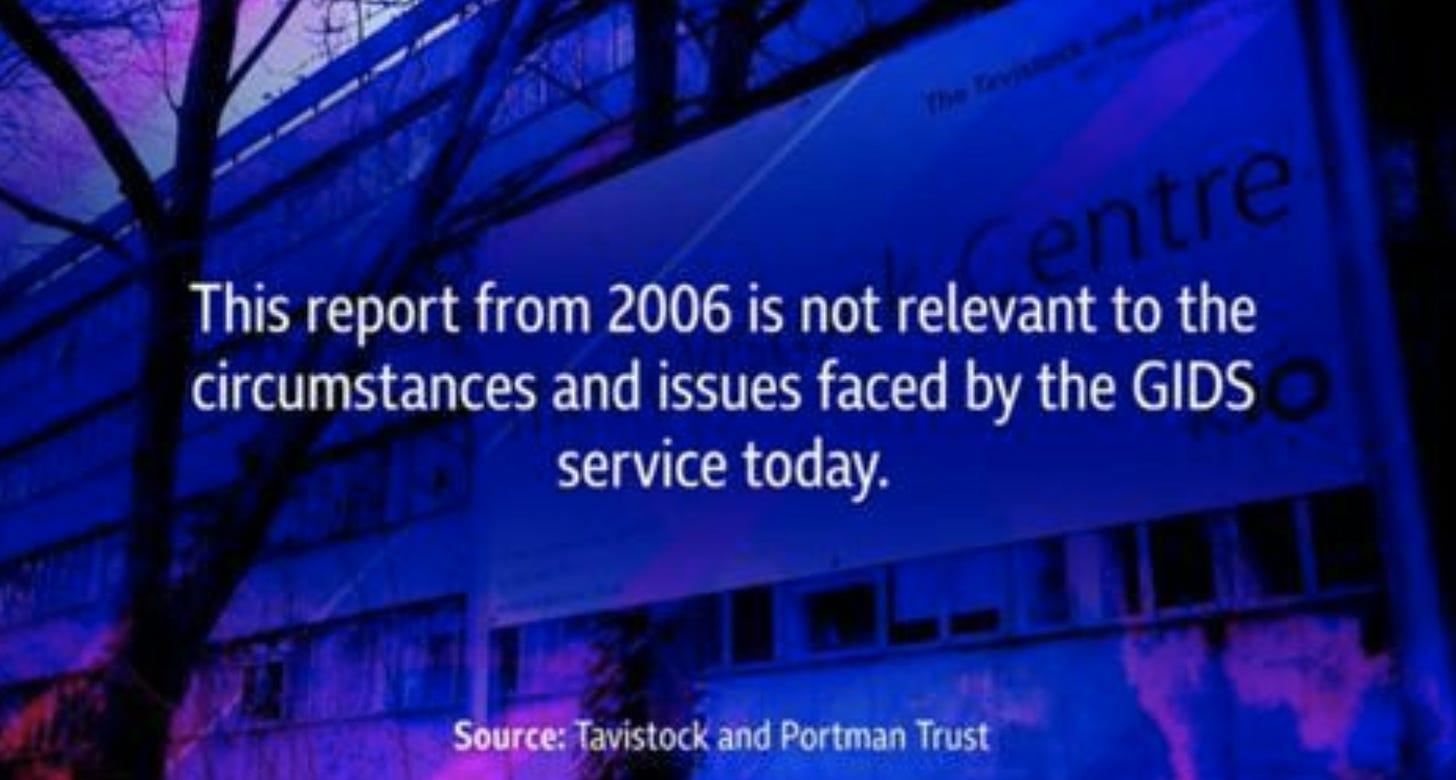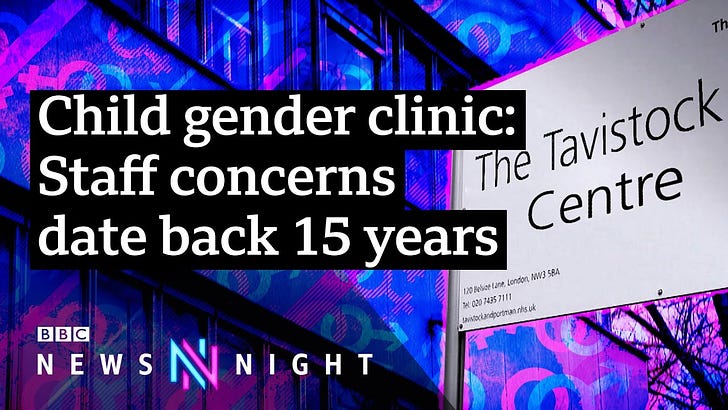(A reformatted version of this thread by Hannah Barnes)
In May 2019, BBC Newsnight requested a copy of a 2005 review of the Gender Identity Development Unit - now GIDS - via the FOI Act. Many months later, we’ve now published some its findings and recommendations:
The review was carried out by Dr David Taylor, then medical director of the Tavistock and Portman NHS Foundation Trust, between May and October 2005. Its findings were published internally in January 2006. He spoke with members of the team, the wider Trust & endocrinologists.
Dr Taylor stresses that staff were doing all they could to help their patients, who were often very distressed. They took the work very seriously. But, his report went on to detail several areas that he believed needed addressing.
These included: 1) A number of children referred to the service had experienced trauma through “deprived or injurious upbringings - child abuse, multiple caregivers etc.”
2) There were “pressures upon staff to comply with the demands and expectations of patients [for puberty blockers], and sometimes of their parents, in ways that may not always be in their long-term best interest.”
5/
3) There wasn't a robust evidence base underpinning the use of puberty blockers for the treatment of this patient group. Dr Taylor writes, “as far as we could tell they are relatively untested and un-researched.”
4) Staff disagreed about the best way to treat these young people, with “differences about the best way of translating theoretical models and clinical understanding into the most effective approaches to assessment, management and treatment.”
The 2005 service was much smaller than today’s, receiving a fraction tens of the referrals. Young people had to be 16 before a referral for puberty blockers. They can now be as young as 9. The evidence base for these drugs has still not been resolved.
bit.ly/3l6zfaZ
8/ Gender dysphoria - TreatmentTreatment for gender dysphoria aims to help people live the way they want to, in their preferred gender identity or as non-binary.https://bit.ly/3l6zfaZ
The reports findings haven’t been made public before, and the Tavistock Trust turned down our attempts for them to be disclosed. It argued that the report’s “disclosure could adversely impact on the Trust’s ability to provide effective and safe services to its patients.”
Ultimately, the Information Commissioner ruled that - on balance - it was in the public interest to release the document. The ICO’s full ruling can be found here:
bit.ly/2ETZe69
She noted that while some parts of the report may now be out of date (as the Tavistock argued), “some aspects of the care and treatment discussed in the report (such as medication) are still relevant and are being offered today.”
ICO: “It is also important that those directly affected by these issues, either because they have been patients, the parents of patients, or prospective patients should be able to see this information and the extent or otherwise that current practices have emerged from it.”
Dr Taylor called for the service to follow-up patients, for more research, and for staff to be supported if under pressure: “It should be possible for the GIDU to feel that its staff have the clinical authority to decline these physical interventions [blockers],” he writes.
Dr Taylor said puberty blockers should still be available, and might be the best course of action for some, but in his view, all young people needed explorative therapy first.
For those young people who were referred on for treatment with puberty blocker, the report says, “serious consideration needs to be given to individuals capacity to make an informed decision - to give informed consent.”
The report also notes the need for flexibility, it being “very likely that there will be no single, obvious treatment of choice. It is likely to be a package comprised of thorough assessment followed by a variety of therapeutic options.”
Taylor writes: “It is likely that some of the improvements to the service will be resisted by some of the patients hitherto referred to it ... even while they are to their long-term benefit. This may reduce referral rates and the risk attached to this needs to be estimated.”
We asked Dr Taylor to elaborate. He said, “if you try to set out to please or comply with someone, whether you're a parent or a clinician, then you won't be helping them ...I do think that maybe the service as it developed to some extent, lost its compass in those respects.”
It is unclear why some of the report’s recommendations weren't implemented, but Dr Taylor told Newsnight there may be several reasons. He said: “The demand for these services was greater than the capacity of the unit to cope.“
Shifting attitudes towards gender identity & underfunding of other mental health services also important, he said. "Many patients would have been better served referred to other services. But underfunding of Child and Adolescent Mental Health Services made that impossible."
The Tavistock Trust said the report "is not relevant to the circumstances and issues faced by the GIDS service today."
"The service had been nationally commissioned since 2009, with NHS England (NHSE) taking responsibility for it in 2013. The service specifications were reviewed in 2016 and are currently under review again, as scheduled,” it explained.
"Some of the young people we see in the service experience difficulties which may or may not be related to gender dysphoria. GIDS is a specialist service and relies on an integrated care model in which it works closely with local CAMHS to support ongoing difficulties.”
"It is important to recognise that not all co-occurring difficulties will be resolved by accessing specialist psychosocial exploration of gender identity and related issues," the Trust said.
The Trust welcomed the NHS review of gender services, to be conducted by Dr Hilary Cass, the former President of the Royal College of Paediatrics and Child Health, and hope it will lead “to better and quicker access to support for these young people.”
Hannah Barnes
I asked Susan Evans for comment.

“This statement by Gids does not make sense to me, stating the ‘non-relevance’ of this report with regard to the current service.
In 2005 Dr David Taylor stated that because so much was unknown about gender dysphoria and the administration of hormone blockers to children, the clinic should ensure they carried out rigorous research, clinical audit and observe the long-term outcomes of this experimental treatment. Dr Polly Carmichael, new director at GIDS, was a senior member of staff involved in the review, Dr Sarah Davidson joined the service in the following months and both remain and would have been aware of the report recommendations.
How would a good clinical NHS service not want to research and investigate more fully a treatment on children which by their own admission they do not understand or know the consequences of? The risk of harm to young people and their families was and is too great.”




Follow the money? It was an irresistible business opportunity for a struggling NHS Trust which staked its financial future on growing this market, stimulated, as Dr T said, by the widespread cuts to general child and adolescent mental health services.